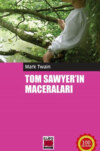Kitabı oku: «Complete Letters of Mark Twain», sayfa 37
But we cannot undertake it until L. A. L, is out of the way. With our hands free and some capital to spare, we could make it hum.
Where is the Shelley article? If you have it on hand, keep it and I will presently tell you what to do with it.
Don’t forget to tell me.
Yours Sincerely,
S. L. C.
The Shelley article mentioned in this letter was the “Defense of Harriet Sheller,” one of the very best of his essays. How he could have written this splendid paper at a time of such distraction passes comprehension. Furthermore, it is clear that he had revised, indeed rewritten, the long story of Pudd’nhead Wilson.
*****
To Fred J. Hall, in New York:
July 30, ’93.
Dear Mr. Hall, – This time “Pudd’nhead Wilson” is a success! Even Mrs. Clemens, the most difficult of critics, confesses it, and without reserves or qualifications. Formerly she would not consent that it be published either before or after my death. I have pulled the twins apart and made two individuals of them; I have sunk them out of sight, they are mere flitting shadows, now, and of no importance; their story has disappeared from the book. Aunt Betsy Hale has vanished wholly, leaving not a trace behind; aunt Patsy Cooper and her daughter Rowena have almost disappeared – they scarcely walk across the stage. The whole story is centered on the murder and the trial; from the first chapter the movement is straight ahead without divergence or side-play to the murder and the trial; everything that is done or said or that happens is a preparation for those events. Therefore, 3 people stand up high, from beginning to end, and only 3—Pudd’nhead, “Tom” Driscoll, and his nigger mother, Roxana; none of the others are important, or get in the way of the story or require the reader’s attention. Consequently, the scenes and episodes which were the strength of the book formerly are stronger than ever, now.
When I began this final reconstruction the story contained 81,500 words, now it contains only 58,000. I have knocked out everything that delayed the march of the story – even the description of a Mississippi steamboat. There’s no weather in, and no scenery – the story is stripped for flight!
Now, then what is she worth? The amount of matter is but 3,000 words short of the American Claimant, for which the syndicate paid $12,500. There was nothing new in that story, but the finger-prints in this one is virgin ground – absolutely fresh, and mighty curious and interesting to everybody.
I don’t want any more syndicating – nothing short of $20,000, anyway, and that I can’t get – but won’t you see how much the Cosmopolitan will stand?
Do your best for me, for I do not sleep these nights, for visions of the poor-house.
This in spite of the hopeful tone of yours of 11th to Langdon (just received) for in me hope is very nearly expiring. Everything does look so blue, so dismally blue!
By and by I shall take up the Rhone open-boat voyage again, but not now – we are going to be moving around too much. I have torn up some of it, but still have 15,000 words that Mrs. Clemens approves of, and that I like. I may go at it in Paris again next winter, but not unless I know I can write it to suit me.
Otherwise I shall tackle Adam once more, and do him in a kind of a friendly and respectful way that will commend him to the Sunday schools. I’ve been thinking out his first life-days to-day and framing his childish and ignorant impressions and opinions for him.
Will ship Pudd’nhead in a few days. When you get it cable.
Mark Twain.
Care Brownship, London.
Received.
I mean to ship “Pudd’nhead Wilson” to you-say, tomorrow. It’ll furnish me hash for awhile I reckon. I am almost sorry it is finished; it was good entertainment to work at it, and kept my mind away from things.
We leave here in about ten days, but the doctors have changed our plans again. I think we shall be in Bohemia or thereabouts till near the end of September, then go to Paris and take a rest.
Yours Sincerely,
S. L. C.
P. S. Mrs. Clemens has come in since, and read your letter and is deeply distressed. She thinks that in some letter of mine I must have reproached you. She says it is wonderful that you have kept the ship afloat in this storm that has seen fleets and fleets go down; that from what she learns of the American business-situation from her home letters you have accomplished a marvel in the circumstances, and that she cannot bear to have a word said to you that shall voice anything but praise and the heartiest appreciation – and not the shadow of a reproach will she allow.
I tell her I didn’t reproach you and never thought of such a thing. And I said I would break open my letter and say so.
Mrs. Clemens says I must tell you not to send any money for a month or two – so that you may be afforded what little relief is in our power. All right – I’m willing; (this is honest) but I wish Brer Chatto would send along his little yearly contribution. I dropped him a line about another matter a week ago – asked him to subscribe for the Daily News for me – you see I wanted to remind him in a covert way that it was pay-up time – but doubtless I directed the letter to you or some one else, for I don’t hear from him and don’t get any Daily News either.
*****
To Fred J. Hall, in New York:
Aug. 6, ’93.
Dear Mr. Hall, – I am very sorry – it was thoughtless in me. Let the reports go. Send me once a month two items, and two only:
Cash liabilities – (so much) Cash assets – (so much)
I can perceive the condition of the business at a glance, then, and that will be sufficient.
Here we never see a newspaper, but even if we did I could not come anywhere near appreciating or correctly estimating the tempest you have been buffeting your way through – only the man who is in it can do that – but I have tried not to burden you thoughtlessly or wantonly. I have been wrought and unsettled in mind by apprehensions, and that is a thing that is not helpable when one is in a strange land and sees his resources melt down to a two months’ supply and can’t see any sure daylight beyond. The bloody machine offered but a doubtful outlook – and will still offer nothing much better for a long time to come; for when Davis’s “three weeks” is up there’s three months’ tinkering to follow I guess. That is unquestionably the boss machine of the world, but is the toughest one on prophets, when it is in an incomplete state, that has ever seen the light. Neither Davis nor any other man can foretell with any considerable approach to certainty when it will be ready to get down to actual work in a printing office.
(No signature.)
Three days after the foregoing letter was written he wrote, briefly:
“Great Scott but it’s a long year-for you and me! I never knew the almanac to drag so. At least since I was finishing that other machine.
“I watch for your letters hungrily – just as I used to watch for the cablegram saying the machine’s finished; but when ’next week certainly’ swelled into ‘three weeks sure’ I recognized the old familiar tune I used to hear so much. Ward don’t know what sick-heartedness is – but he is in a way to find out.”
Always the quaint form of his humor, no matter how dark the way. We may picture him walking the floor, planning, scheming, and smoking – always smoking – trying to find a way out. It was not the kind of scheming that many men have done under the circumstances; not scheming to avoid payment of debts, but to pay them.
*****
To Fred J. Hall, in New York:
Aug. 14, ’93
Dear Mr. Hall, – I am very glad indeed if you and Mr. Langdon are able to see any daylight ahead. To me none is visible. I strongly advise that every penny that comes in shall be applied to paying off debts. I may be in error about this, but it seems to me that we have no other course open. We can pay a part of the debts owing to outsiders – none to the Clemenses. In very prosperous times we might regard our stock and copyrights as assets sufficient, with the money owing to us, to square up and quit even, but I suppose we may not hope for such luck in the present condition of things.
What I am mainly hoping for, is to save my royalties. If they come into danger I hope you will cable me, so that I can come over and try to save them, for if they go I am a beggar.
I would sail to-day if I had anybody to take charge of my family and help them through the difficult journeys commanded by the doctors. I may be able to sail ten days hence; I hope so, and expect so.
We can never resurrect the L. A. L. I would not spend any more money on that book. You spoke, a while back, of trying to start it up again as a preparation to disposing of it, but we are not in shape to venture that, I think. It would require more borrowing, and we must not do that.
Yours Sincerely,
S. L. C.
Aug. 16. I have thought, and thought, but I don’t seem to arrive in any very definite place. Of course you will not have an instant’s safety until the bank debts are paid. There is nothing to be thought of but to hand over every penny as fast as it comes in – and that will be slow enough! Or could you secure them by pledging part of our cash assets and—
I am coming over, just as soon as I can get the family moved and settled.
S. L. C.
Two weeks following this letter he could endure the suspense no longer, and on August 29th sailed once more for America. In New York, Clemens settled down at the Players Club, where he could live cheaply, and undertook some literary work while he was casting about for ways and means to relieve the financial situation. Nothing promising occurred, until one night at the Murray Hill Hotel he was introduced by Dr. Clarence C. Rice to Henry H. Rogers, of the Standard Oil group of financiers. Rogers had a keen sense of humor and had always been a great admirer of Mark Twain’s work. It was a mirthful evening, and certainly an eventful one in Mark Twain’s life. A day or two later Doctor Rice asked the millionaire to interest himself a little in Clemens’s business affairs, which he thought a good deal confused. Just what happened is not remembered now, but from the date of the next letter we realize that a discussion of the matter by Clemens and Rogers must have followed pretty promptly.
*****
To Mrs. Clemens, in Europe:
Oct. 18, ’93.
Dear, dear sweetheart, – I don’t seem to get even half a chance to write you, these last two days, and yet there’s lots to say.
Apparently everything is at last settled as to the giveaway of L. A. L., and the papers will be signed and the transfer made to-morrow morning.
Meantime I have got the best and wisest man in the whole Standard Oil group of mufti-millionaires a good deal interested in looking into the type-setter (this is private, don’t mention it.) He has been searching into that thing for three weeks, and yesterday he said to me, “I find the machine to be all you represented it – I have here exhaustive reports from my own experts, and I know every detail of its capacity, its immense value, its construction, cost, history, and all about its inventor’s character. I know that the New York Co. and the Chicago Co. are both stupid, and that they are unbusinesslike people, destitute of money and in a hopeless boggle.”
Then he told me the scheme he had planned, then said: “If I can arrange with these people on this basis – it will take several weeks to find out – I will see to it that they get the money they need. Then the thing will move right along and your royalties will cease to be waste paper. I will post you the minute my scheme fails or succeeds. In the meantime, you stop walking the floor. Go off to the country and try to be gay. You may have to go to walking again, but don’t begin till I tell you my scheme has failed.” And he added: “Keep me posted always as to where you are – for if I need you and can use you – I want to know where to put my hand on you.”
If I should even divulge the fact that the Standard Oil is merely talking remotely about going into the type-setter, it would send my royalties up.
With worlds and worlds of love and kisses to you all,
Saml.
With so great a burden of care shifted to the broad financial shoulders of H. H. Rogers, Mark Twain’s spirits went ballooning, soaring toward the stars. He awoke, too, to some of the social gaieties about him, and found pleasure in the things that in the hour of his gloom had seemed mainly mockery. We find him going to a Sunday evening at Howells’s, to John Mackay’s, and elsewhere.
*****
To Mrs. Clemens, in Paris:
Dec. 2, ’93.
Livy darling, – Last night at John Mackay’s the dinner consisted of soup, raw oysters, corned beef and cabbage, and something like a custard. I ate without fear or stint, and yet have escaped all suggestion of indigestion. The men present were old gray Pacific-coasters whom I knew when I and they were young and not gray. The talk was of the days when we went gypsying a long time ago – thirty years. Indeed it was a talk of the dead. Mainly that. And of how they looked, and the harum-scarum things they did and said. For there were no cares in that life, no aches and pains, and not time enough in the day (and three-fourths of the night) to work off one’s surplus vigor and energy. Of the mid-night highway robbery joke played upon me with revolvers at my head on the windswept and desolate Gold Hill Divide, no witness is left but me, the victim. All the friendly robbers are gone. These old fools last night laughed till they cried over the particulars of that old forgotten crime.
John Mackay has no family here but a pet monkey – a most affectionate and winning little devil. But he makes trouble for the servants, for he is full of curiosity and likes to take everything out of the drawers and examine it minutely; and he puts nothing back. The examinations of yesterday count for nothing to-day – he makes a new examination every day. But he injures nothing.
I went with Laffan to the Racquet Club the other night and played, billiards two hours without starting up any rheumatism. I suppose it was all really taken out of me in Berlin.
Richard Harding Davis spoke yesterday of Clara’s impersonations at Mrs. Van Rensselaer’s here and said they were a wonderful piece of work.
Livy dear, I do hope you are comfortable, as to quarters and food at the Hotel Brighton. But if you’re not don’t stay there. Make one more effort – don’t give it up. Dear heart, this is from one who loves you – which is Saml.
It was decided that Rogers and Clemens should make a trip to Chicago to investigate personally the type-setter situation there. Clemens reports the details of the excursion to Mrs. Clemens in a long subdivided letter, most of which has no general interest and is here omitted. The trip, as a whole, would seem to have been satisfactory. The personal portions of the long Christmas letter may properly be preserved.
*****
To Mrs. Clemens, in Paris:
The players, Xmas, 1893.
No. 1.
Merry Xmas, my darling, and all my darlings! I arrived from Chicago close upon midnight last night, and wrote and sent down my Christmas cablegram before undressing: “Merry Xmas! Promising progress made in Chicago.” It would get to the telegraph office toward 8 this morning and reach you at luncheon.
I was vaguely hoping, all the past week, that my Xmas cablegram would be definite, and make you all jump with jubilation; but the thought always intruded itself, “You are not going out there to negotiate with a man, but with a louse. This makes results uncertain.”
I was asleep as Christmas struck upon the clock at mid night, and didn’t wake again till two hours ago. It is now half past 10 Xmas morning; I have had my coffee and bread, and shan’t get out of bed till it is time to dress for Mrs. Laflan’s Christmas dinner this evening – where I shall meet Bram Stoker and must make sure about that photo with Irving’s autograph. I will get the picture and he will attend to the rest. In order to remember and not forget – well, I will go there with my dress coat wrong side out; it will cause remark and then I shall remember.
No. 2 and 3.
I tell you it was interesting! The Chicago campaign, I mean. On the way out Mr. Rogers would plan out the campaign while I walked the floor and smoked and assented. Then he would close it up with a snap and drop it and we would totally change the subject and take up the scenery, etc.
(Here follows the long detailed report of the Chicago conference, of interest only to the parties directly concerned.)
No. 4.
We had nice tripe, going and coming. Mr. Rogers had telegraphed the Pennsylvania Railroad for a couple of sections for us in the fast train leaving at 2 p. m. the 22nd. The Vice President telegraphed back that every berth was engaged (which was not true – it goes without saying) but that he was sending his own car for us. It was mighty nice and comfortable. In its parlor it had two sofas, which could become beds at night. It had four comfortably-cushioned cane arm-chairs. It had a very nice bedroom with a wide bed in it; which I said I would take because I believed I was a little wider than Mr. Rogers – which turned out to be true; so I took it. It had a darling back-porch – railed, roofed and roomy; and there we sat, most of the time, and viewed the scenery and talked, for the weather was May weather, and the soft dream-pictures of hill and river and mountain and sky were clear and away beyond anything I have ever seen for exquisiteness and daintiness.
The colored waiter knew his business, and the colored cook was a finished artist. Breakfasts: coffee with real cream; beefsteaks, sausage, bacon, chops, eggs in various ways, potatoes in various – yes, and quite wonderful baked potatoes, and hot as fire. Dinners – all manner of things, including canvas-back duck, apollinaris, claret, champagne, etc.
We sat up chatting till midnight, going and coming; seldom read a line, day or night, though we were well fixed with magazines, etc.; then I finished off with a hot Scotch and we went to bed and slept till 9.30 a.m. I honestly tried to pay my share of hotel bills, fees, etc., but I was not allowed – and I knew the reason why, and respected the motive. I will explain when I see you, and then you will understand.
We were 25 hours going to Chicago; we were there 24 hours; we were 30 hours returning. Brisk work, but all of it enjoyable. We insisted on leaving the car at Philadelphia so that our waiter and cook (to whom Mr. R. gave $10 apiece,) could have their Christmas-eve at home.
Mr. Rogers’s carriage was waiting for us in Jersey City and deposited me at the Players. There – that’s all. This letter is to make up for the three letterless days. I love you, dear heart, I love you all.
Sam.
XXXIV. Letters 1894. A Winter In New York. Business Failure. End Of The Machine
The beginning of the new year found Mark Twain sailing buoyantly on a tide of optimism. He believed that with H. H. Rogers as his financial pilot he could weather safely any storm or stress. He could divert himself, or rest, or work, and consider his business affairs with interest and amusement, instead of with haggard anxiety. He ran over to Hartford to see an amateur play; to Boston to give a charity reading; to Fair Haven to open the library which Mr. Rogers had established there; he attended gay dinners, receptions, and late studio parties, acquiring the name of the “Belle of New York.” In the letters that follow we get the echo of some of these things. The Mrs. Rice mentioned in the next brief letter was the wife of Dr. Clarence C. Rice, who had introduced H. H. Rogers to Mark Twain.
*****
To Mrs. Clemens, in Paris:
Jan. 12, ’94
Livy darling, I came down from Hartford yesterday with Kipling, and he and Hutton and I had the small smoking compartment to ourselves and found him at last at his ease, and not shy. He was very pleasant company indeed. He is to be in the city a week, and I wish I could invite him to dinner, but it won’t do. I should be interrupted by business, of course. The construction of a contract that will suit Paige’s lawyer (not Paige) turns out to be very difficult. He is embarrassed by earlier advice to Paige, and hates to retire from it and stultify himself. The negotiations are being conducted, by means of tedious long telegrams and by talks over the long-distance telephone. We keep the wires loaded.
Dear me, dinner is ready. So Mrs. Rice says.
With worlds of love,
Saml.
Clemens and Oliver Wendell Holmes had met and become friends soon after the publication of Innocents Abroad, in 1869. Now, twenty-five years later, we find a record of what without doubt was their last meeting. It occurred at the home of Mrs. James T. Field.
*****
To Mrs. Clemens, in Paris:
Boston, Jan. 25, ’94.
Livy darling, I am caught out worse this time than ever before, in the matter of letters. Tuesday morning I was smart enough to finish and mail my long letter to you before breakfast – for I was suspecting that I would not have another spare moment during the day. It turned out just so.
In a thoughtless moment I agreed to come up here and read for the poor. I did not reflect that it would cost me three days. I could not get released. Yesterday I had myself called at 8 and ran out to Mr. Rogers’s house at 9, and talked business until half past 10; then caught 11 o’clock train and arrived here at 6; was shaven and dressed by 7 and ready for dinner here in Mrs. Field’s charming house.
Dr. Oliver Wendell Holmes never goes out now (he is in his 84th year,) but he came out this time – said he wanted to “have a time” once more with me.
Mrs. Fields said Aldrich begged to come and went away crying because she wouldn’t let him. She allowed only her family (Sarah Orne Jewett and sister) to be present, because much company would overtax Dr. Holmes.
Well, he was just delightful! He did as brilliant and beautiful talking (and listening) as ever he did in his life, I guess. Fields and Jewett said he hadn’t been in such splendid form in years. He had ordered his carriage for 9.
The coachman sent in for him at 9; but he said, “Oh, nonsense! – leave glories and grandeurs like these? Tell him to go away and come in an hour!”
At 10 he was called for again, and Mrs. Fields, getting uneasy, rose, but he wouldn’t go – and so we rattled ahead the same as ever. Twice more Mrs. Fields rose, but he wouldn’t go – and he didn’t go till half past 10—an unwarrantable dissipation for him in these days. He was prodigiously complimentary about some of my books, and is having Pudd’nhead read to him. I told him you and I used the Autocrat as a courting book and Mark.d it all through, and that you keep it in the sacred green box with the love letters, and it pleased him.
Good-bye, my dear darling, it is 15 minutes to dinner and I’m not dressed yet. I have a reception to-night and will be out very late at that place and at Irving’s Theatre where I have a complimentary box. I wish you were all here.
Saml.
In the next letter we meet James J. Corbett—“Gentleman Jim,” as he was sometimes called – the champion pugilist of that day.
The Howells incident so amusingly dramatized will perhaps be more appreciated if the reader remembers that Mark Twain himself had at intervals been a mind-healing enthusiast. Indeed, in spite of his strictures on Mrs. Eddy, his interest in the subject of mind-cure continued to the end of his life.
*****
To Mrs. Clemens, in Paris:
Sunday, 9.30 a. m.
Livy dear, when we got out to the house last night, Mrs. Rogers, who is up and around, now, didn’t want to go down stairs to dinner, but Mr. R. persuaded her and we had a very good time indeed. By 8 o’clock we were down again and bought a fifteen-dollar box in the Madison Square Garden (Rogers bought it, not I,) then he went and fetched Dr. Rice while I (went) to the Players and picked up two artists – Reid and Simmons – and thus we filled 5 of the 6 seats. There was a vast multitude of people in the brilliant place. Stanford White came along presently and invited me to go to the World-Champion’s dressing room, which I was very glad to do. Corbett has a fine face and is modest and diffident, besides being the most perfectly and beautifully constructed human animal in the world. I said:
“You have whipped Mitchell, and maybe you will whip Jackson in June – but you are not done, then. You will have to tackle me.”
He answered, so gravely that one might easily have thought him in earnest:
“No – I am not going to meet you in the ring. It is not fair or right to require it. You might chance to knock me out, by no merit of your own, but by a purely accidental blow; and then my reputation would be gone and you would have a double one. You have got fame enough and you ought not to want to take mine away from me.”
Corbett was for a long time a clerk in the Nevada Bank in San Francisco.
There were lots of little boxing matches, to entertain the crowd: then at last Corbett appeared in the ring and the 8,000 people present went mad with enthusiasm. My two artists went mad about his form. They said they had never seen anything that came reasonably near equaling its perfection except Greek statues, and they didn’t surpass it.
Corbett boxed 3 rounds with the middle-weight Australian champion – oh, beautiful to see! – then the show was over and we struggled out through a perfect wash of humanity. When we reached the street I found I had left my arctics in the box. I had to have them, so Simmons said he would go back and get them, and I didn’t dissuade him. I couldn’t see how he was going to make his way a single yard into that solid oncoming wave of people – yet he must plow through it full 50 yards. He was back with the shoes in 3 minutes!
How do you reckon he accomplished that miracle? By saying:
“Way, gentlemen, please – coming to fetch Mr. Corbett’s overshoes.”
The word flew from mouth to mouth, the Red Sea divided, and Simmons walked comfortably through and back, dry shod. Simmons (this was revealed to me under seal of secrecy by Reid) is the hero of “Gwen,” and he and Gwen’s author were once engaged to marry. This is “fire-escape” Simmons, the inveterate talker, you know: “Exit – in case of Simmons.”
I had an engagement at a beautiful dwelling close to the Players for 10.30; I was there by 10.45. Thirty cultivated and very musical ladies and gentlemen present – all of them acquaintances and many of them personal friends of mine. That wonderful Hungarian Band was there (they charge $500 for an evening.) Conversation and Band until midnight; then a bite of supper; then the company was compactly grouped before me and I told about Dr. B. E. Martin and the etchings, and followed it with the Scotch-Irish Christening. My, but the Martin is a darling story! Next, the head tenor from the Opera sang half a dozen great songs that set the company wild, yes, mad with delight, that nobly handsome young Damrosch accompanying on the piano.
Just a little pause – then the Band burst out into an explosion of weird and tremendous dance music, a Hungarian celebrity and his wife took the floor – I followed; I couldn’t help it; the others drifted in, one by one, and it was Onteora over again.
By half past 4 I had danced all those people down – and yet was not tired; merely breathless. I was in bed at 5, and asleep in ten minutes. Up at 9 and presently at work on this letter to you. I think I wrote until 2 or half past. Then I walked leisurely out to Mr. Rogers’s (it is called 3 miles but it is short of it) arriving at 3.30, but he was out – to return at 5.30—(and a person was in, whom I don’t particularly like) – so I didn’t stay, but dropped over and chatted with the Howellses until 6.
First, Howells and I had a chat together. I asked about Mrs. H. He said she was fine, still steadily improving, and nearly back to her old best health. I asked (as if I didn’t know):
“What do you attribute this strange miracle to?”
“Mind-cure – simply mind-cure.”
“Lord, what a conversion! You were a scoffer three months ago.”
“I? I wasn’t.”
“You were. You made elaborate fun of me in this very room.”
“I did not, Clemens.”
“It’s a lie, Howells, you did.”
I detailed to him the conversation of that time – with the stately argument furnished by Boyesen in the fact that a patient had actually been killed by a mind-curist; and Howells’s own smart remark that when the mind-curist is done with you, you have to call in a “regular” at last because the former can’t procure you a burial permit.
At last he gave in – he said he remembered that talk, but had now been a mind-curist so long it was difficult for him to realize that he had ever been anything else.
Mrs. H. came skipping in, presently, the very person, to a dot, that she used to be, so many years ago.
Mrs. H. said: “People may call it what they like, but it is just hypnotism, and that’s all it is – hypnotism pure and simple. Mind-cure! – the idea! Why, this woman that cured me hasn’t got any mind. She’s a good creature, but she’s dull and dumb and illiterate and—”
“Now Eleanor!”
“I know what I’m talking about! – don’t I go there twice a week? And Mr. Clemens, if you could only see her wooden and satisfied face when she snubs me for forgetting myself and showing by a thoughtless remark that to me weather is still weather, instead of being just an abstraction and a superstition – oh, it’s the funniest thing you ever saw! A-n-d-when she tilts up her nose-well, it’s – it’s – Well it’s that kind of a nose that—”
“Now Eleanor! – the woman is not responsible for her nose—” and so-on and so-on. It didn’t seem to me that I had any right to be having this feast and you not there.
She convinced me before she got through, that she and William James are right – hypnotism and mind-cure are the same thing; no difference between them. Very well; the very source, the very center of hypnotism is Paris. Dr. Charcot’s pupils and disciples are right there and ready to your hand without fetching poor dear old Susy across the stormy sea. Let Mrs. Mackay (to whom I send my best respects), tell you whom to go to to learn all you need to learn and how to proceed. Do, do it, honey. Don’t lose a minute.




















